- Home
- Mike Lupica
Jump
Jump Read online
Copyright © 1995 by Mike Lupica
All rights reserved under International and Pan-American Copyright Conventions. Published in the United States by Villard Books, a division of Random House, Inc., New York, and simultaneously in Canada by Random House of Canada Limited, Toronto.
Villard Books is a registered trademark of Random House, Inc.
Library of Congress Cataloging-in-Publication Data
Lupica, Mike.
Jump: a novel / Mike Lupica.
p. cm.
eISBN: 978-0-307-82996-2
I. Title.
PS3562.U59A79 1995
813′.54—dc20 94-20609
v3.1
Contents
Cover
Title Page
Copyright
Chapter 1
Chapter 2
Chapter 3
Chapter 4
Chapter 5
Chapter 6
Chapter 7
Chapter 8
Chapter 9
Chapter 10
Chapter 11
Chapter 12
Chapter 13
Chapter 14
Chapter 15
Chapter 16
Chapter 17
Chapter 18
Chapter 19
Chapter 20
Chapter 21
Chapter 22
Chapter 23
Chapter 24
Chapter 25
Chapter 26
Chapter 27
Chapter 28
Chapter 29
Chapter 30
Chapter 31
Chapter 32
Chapter 33
Chapter 34
Chapter 35
Chapter 36
Chapter 37
Dedication
Acknowledgments
Other Books by This Author
About the Author
1
Hannah had acted the scene out a thousand times. Played both parts, trying it different ways, just to see how it sounded. She would wake up early, four o’clock, five o’clock, and sometimes be halfway into the scene already, as though it had started in a dream and just kept going. Turned into a movie without her even knowing it.
“I’d like to report a rape.”
The cop would look up. It was always a different cop, sometimes young, sometimes older, always in uniform.
Sometimes black, sometimes white.
He’d look up from what he was doing, anyway.
“I beg your pardon?”
“I said, ‘I’d like to report a rape.’ ”
Hannah was always very relaxed, very sure of herself. If she lost it in imagination, what would the real thing be like? She wasn’t an analytical person. She’d never seen herself as any great brain. But she had a sense of how things should look.
She could tell you what was wrong with this picture, basically.
So she’d be standing there in front of the cop and finally he would look up, take a closer look at her. He would look at her the way men had always looked at her. Hannah never thought of herself as beautiful, either. She would look in the mirror sometimes, trying to figure out what the big deal was. Men always had a different idea, as far back as she could remember.
The cop would say, “Why don’t you take a seat, so we can talk about this. Rape, you said?”
“Yes.”
“Where?”
“Right here in Fulton.”
Now would come the hard part, as the cop started to write everything down.
“When did this alleged rape occur?”
Sometimes they said alleged, sometimes they didn’t.
“What?”
“The rape, when did it occur?”
Shit.
“Last year.”
The cop stops writing and looks up at her, skeptical.
“Last year?”
“Almost a year ago exactly. The first week of October. October fourth, to be exact. The night of October fourth.”
“I see.” He writes that down and then he says, “The person who raped you—”
“Persons.” Hannah would lean on the second part of the word, making sure he knew it was more than one.
“Persons. Do you know these persons?”
And that’s when she would tell him, giving one name and then the other. This was the easy part; now she would have his attention. The cop, white or black or young or old or handsome, never liked the part about everything happening a year ago. But the names always made him change his attitude.
Even imagining things, Hannah went out of her way to please people.
“You’re kidding,” the cop would say.
“I wish,” Hannah would say, or something along those lines.
Sometimes, imagining in the dark, only a slash of light coming from the bathroom, she didn’t like it to be completely dark anymore, she had to make sure not to get snippy here. She wanted the cop on her side, not thinking she was some kind of cold fish. Jimmy, her brother, called her that all the time.
She wished Jimmy was with her now, standing in front of a real police station finally, not a made-up one. The sign, sitting there in the middle of the little village green, said POLICE DEPARTMENT, FULTON, CONNECTICUT. The building looked more like a frame house than some police station. Where was she, Mayberry? She was always comparing things in real life to television. If she walked in, who was she going to find in there, Sheriff Andy and Deputy Barney? Across the street was the Fulton Market, and an ice-cream parlor called Scoops, and a movie theater with one of those old-fashioned marquees in front, like you saw in movies about the fifties. And across the green, to the right, was the library. There was a little girl in a pink dress, pink ribbon in her hair, on the steps of the library, waiting for her mother, the mother in a man’s white shirt with rolled-up sleeves and blue jeans and Keds, straight blond hair, looking like Martha Stewart on the cover of one of her books, one of those books that told you how to have a perfect house and perfect food and a perfect life. Hannah took it all in: the library, the mother, the little girl, all the cute stores, everything looking like a library, really. The police station, looking different, built in some kind of cream-colored brick, sat right there, across the green.
This was as far as Hannah had ever made it.
Do I go in or not?
Okay, what’s it going to be?
She knew if she didn’t go in now, she was never going in. She would lose her nerve forever, get back into the car, go back to Manhattan, play it out inside her head for the rest of her life, or with Beth, her therapist. What she’d told Beth, anyway. Because she hadn’t ever come close to telling her everything.
What’s it going to be?
After all this time, after a thousand dreams, Hannah walked out of her own head and across the green toward the police station.
Inside, it looked more like a bank. They had a receptionist just inside the front door, behind a glass partition.
She said to the receptionist, “I’d like to speak to Detective Hyland, please.”
The woman’s nameplate said SCHNEIDER. She had short gray hair and a broad nose and glasses with lenses so thick you couldn’t make out the color of her eyes. She was smoking.
Schneider said, “What’s this in reference to?”
“He’ll know what it’s about when you give him my name.”
“Which is?”
“Hannah Carey.”
“Take a seat, Miss Carey. I’ll see if he’s free.”
She sat down across from Schneider. There were two chairs and a little glass table in between with newspapers on top of some magazines. She noticed the New Haven Register. The New York Times.
“So you finally came,” he said.
Hannah knew the voice from all the times on the telephone.
“I finally came.”
Hyland said, “Good,” then smiled and put out his hand. “Brian Hyland,” he said. “Why don’t we go back to my office?”
She had wondered what he would look like, whether he would look like any of the cops she had imagined. Or would he be older than his voice sounded on the phone? It turned out he was a little taller than she was, which made him slightly over six feet, with short black hair going to gray on the sides and a mustache the same color, maybe a little grayer. A good tan, cornflower-blue eyes. Straight nose. Probably had a Martha Stewart wife of his own at home. He was wearing a blue button-down polo shirt with a striped tie, khaki slacks, and Bass Weejuns loafers. She thought of him as a television series: Brian Hyland, Preppie Cop. He didn’t look like he was forty yet. Maybe this wouldn’t be so bad.
“Do I pass inspection?”
Hannah said, “What?”
“I feel like you just picked me out of a lineup.” He smiled at her with straight white teeth. The smile seemed genuine. Hannah knew phony come-on smiles by now, men looking at her as if she was the most fascinating person they would ever meet in their lives.
“I just always wondered what you’d look like,” she said, and Hyland said, “Me, too.”
He led her through a big, sunny room, filled with cubicles, and back to his office. He let her go in first, closed the door behind her, then went around his desk and sat down, motioning for her to take the seat across from him.
“So,” he said.
“So.”
“I haven’t talked to you for a while.”
“September eighth.”
“You have the date?”
“I write it down in this book I’ve been keeping. Beth … my therapist … thought it would be a good idea.” Hannah cleared her throat.
“Would you like something to drink?”
“I’m fine.”
“Why did you finally come in, if you don’t mind my asking?”
“It was time for us to have this talk in person.”
“We’ve talked before.”
“It was time for me to come here and make an official statement and sign it. Get on with things once and for all.”
“You didn’t bring a lawyer with you?”
Hannah cleared her throat again. “I don’t need a lawyer to tell me what it was like.”
It was very quiet in Hyland’s office. Out the back window, there was a small parking lot, and then a few more buildings in this tiny shopping plaza.
Detective Brian Hyland said, “Let’s get a stenographer in here, and the videotape guy. Okay?”
Hannah said, “Okay.”
She told him as much of it as she could remember.
About driving up to her mother’s house in Litchfield. The traffic jam on the Merritt Parkway right before New Canaan. Stopping in at the first place, Gates, hoping to see her friend Bobby, who used to bartend there. Then running into them and going along to the next place …
Every once in a while, he would stop her.
“About what time did you leave Gates?”
“I don’t remember.”
“Your friend didn’t work there anymore, but you decided to eat at the bar?”
“Yes.”
“They came in?”
“Yes.”
“You recognized them?”
“The bartender told somebody sitting next to me. So when I looked up, I knew.”
“But you knew who they were?”
“Yes.”
“And that’s why you went along with them?”
“You mean, like as a groupie?”
Detective Hyland put his hands up. “Just because it seemed exciting?”
“I guess so. What was in my head before … I’m not even sure anymore.”
Then about the next place in New Canaan, Mulligan’s, and how crowded it was. And having a few drinks. Then one of them, she couldn’t even remember which one anymore, saying they were moving the party back to their place.
Hannah told him the rest of it and finally looked up at the clock above Hyland’s desk. She had been talking for forty-five minutes. It felt like five.
Hyland said, “There are a lot of gaps. Time gaps and so forth.”
“I know. I’m sorry.”
Hyland said, “When it was over, you don’t remember what time it was?”
“I’m sorry, I didn’t check my watch.”
Hyland let it go, said, “How did you finally get out of the house?”
“I thought I mentioned that before. Collins fell asleep.”
“And the other—”
“He went out.”
“When?”
“I heard a door at some point, I just can’t remember when exactly—”
“And you went to your car then?”
“Yes.”
“You were able to drive back to the city.”
“After a while.”
“After a while?”
“I sat in my car awhile. I don’t know for how long. Then I realized my keys were inside. They must’ve fallen out of my purse.”
“So you went back inside to get them?”
“Yes. Hoping he was still asleep.”
“Was he?”
“Collins wasn’t.”
“Where was Mr. Collins?”
“He was in the living room, drinking a beer, watching some kind of pornographic movie on television.” Hannah cleared her throat. “He was watching this movie, naked, and masturbating.”
“Did he speak to you?”
“Yes.”
“What did he say?”
Hannah said, “He looked up at me, smiling, and said, ‘You want some more?’ I just backed away from him, started to scream—”
“Did Mr. Collins do anything to stop you from leaving after you found your keys?”
“No. He just told me to relax, I was going to wake up his neighbors.”
“Did he say anything else to you?”
“Yes.”
“What did he say, Miss Carey?”
“He said I’d been such a good sport up until then, why was I trying to spoil a perfect evening.”
“Anything else?”
“He said, ‘Why couldn’t you moan like that when I asked you to?’ ”
2
Ellis Adair had to slow up as he crossed the half-court line. A couple of minutes to go in practice now, everybody tired, tongues hanging out like dogs. Everybody except him. Ellis never got tired.
Jordan told him one time, right before he up and retired, “I’m already starting to feel it, Fresh. Fans might not know yet, other players might not know. But I know, babe. End of games especially. I tell my legs to do something, you know what they say sometimes? ‘Fuck you, Michael,’ that’s what they say.”
He said it would happen to Ellis, too, it happened to everybody eventually, then Ellis’d be looking for the door. It just hadn’t happened yet. Couple of minutes to go in practice, in a game, didn’t matter, Ellis was what he’d always been.
Fresh.
Ellis “Fresh” Adair.
Freshest boy out there, like fresh was cruise control for him, all the way back to Jersey City, to the playground at the Booker T. Washington projects. He smiled now to himself, seeing himself, all legs then, legs and big jug ears, getting up there so high he felt like he could see the big city there across the river, like he could reach over and touch it. Palm it in his right hand as easy as he could palm a basketball.
Ellis kept going down the right side, feeling the play come to him.
Richie had the ball in the middle, and A.J. was on the left and there were two of them from the Blue Team, scrubs, Boyzie and Riordan, waiting for them at the foul line. Ellis could see Richie looking left the whole time, leaning that way even off the dribble, tilting everything toward A.J., like he was trying to tilt the whole damn court. Now Boyzie went that way, too, and as he did, Richie showed him his left hand, his left hand out anyway, like he was making a shovel pass. Then Riordan committed,
dumb shit, going with the pass. Only there wasn’t a pass, there was nothing in Richie’s left hand, the ball was in his right hand, and now Richie was lobbing the ball toward the basket, even as he kept looking at A. J. Fine.
Ellis flew. Feeling himself smile as he did. The pictures of himself he liked best always caught him smiling.
Fresh boy.
They always wanted to know what it felt like, being able to fly that way, the way he could and Jordan could, and a few others in the past, David Thompson and Doctor J, they had flown. And Ellis would look at them, tell them how it felt, tell them it felt very, very fresh.
Richie always said, you get a good line, stay with it.
They gave him the nickname in the projects, even before he got into Lincoln High and everybody started to come around, because it was close enough to Fresh Air, and Fresh Air was close enough to Air Jordan.
Now in the gym at Fulton College, third day of training camp, everybody’s legs shot, fucked-up, except his, he was up there again, taking the ball with his left hand, moving it over to his right. Ellis held it over his head now, the way he always did before his cleanest dunk, the one that was so smooth, Richie called it his Fred Astaire.
Who, Richie said, was some dead dancer.
Showtime now, anyways.
Ellis covered his eyes with his left hand.
He could hear Richie, from down below, saying, “Give to me, baby. Give it to me hard.”
The basket was right there now, shit, right under his chin. Ellis hesitated. He was always amazed when he watched himself on the news, how fast everything seemed to go, up there, doing his deal, then down. When he did it on the court, it all seemed to last much longer, slow motion almost, like he was floating on top of the whole thing, like the noise and the other players and the games were some cloud, and Ellis was even above that.
Ellis pulled his hand away from his eyes.
Only he didn’t dunk.
Just dropped the ball in. Like he was putting a quarter in the meter.
They all screamed now at Fulton College.
“I demand a refund!” Richie yelled.
Ellis came limping up to him now, all hunched over like the old rummies and pipeheads back at Booker T. Washington, head bobbing all over the place, giving Richie that wheezy old voice.
“Jes’ an ol’ man, tryin’ to get by, legs shot, cain’t get up no way no mo’,” Ellis said, going into this fake rheumy cough now.

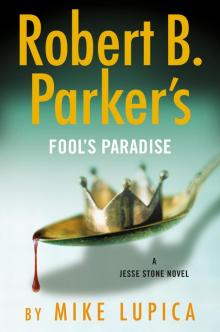 Fool's Paradise
Fool's Paradise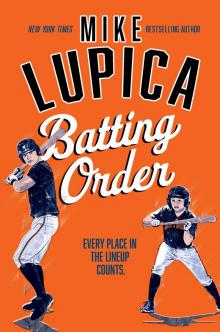 Batting Order
Batting Order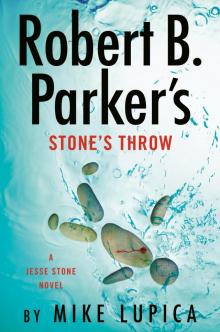 Stone's Throw
Stone's Throw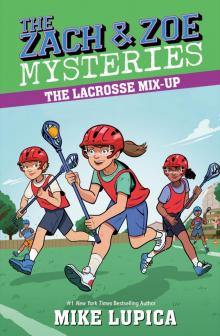 The Lacrosse Mix-Up
The Lacrosse Mix-Up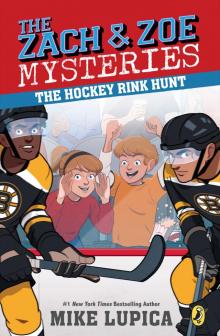 The Hockey Rink Hunt
The Hockey Rink Hunt Payback
Payback Triple Threat
Triple Threat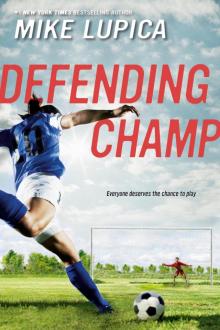 Defending Champ
Defending Champ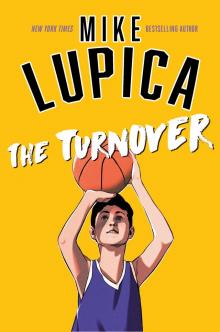 The Turnover
The Turnover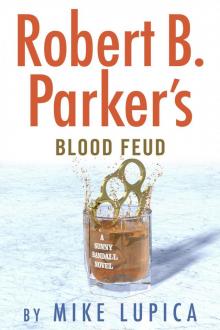 Robert B. Parker's Blood Feud
Robert B. Parker's Blood Feud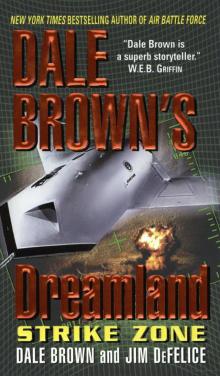 Strike Zone
Strike Zone Hero
Hero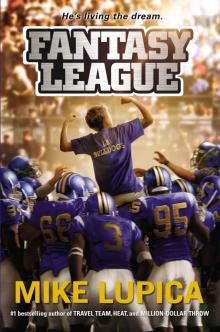 Fantasy League
Fantasy League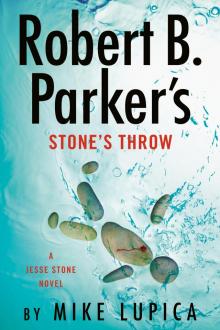 Robert B. Parker's Stone's Throw
Robert B. Parker's Stone's Throw The Big Field
The Big Field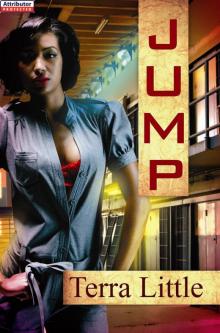 Jump
Jump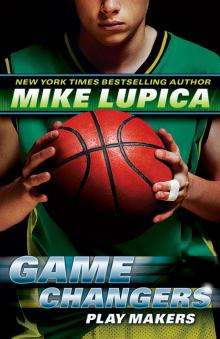 Play Makers
Play Makers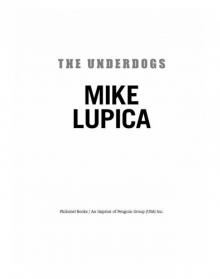 The Underdogs
The Underdogs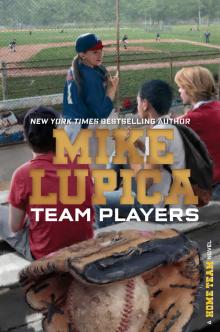 Team Players
Team Players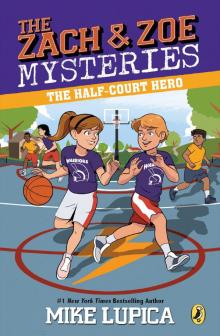 The Half-Court Hero
The Half-Court Hero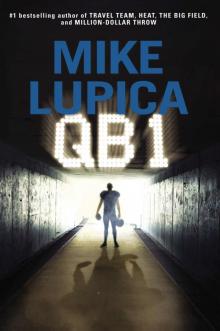 QB 1
QB 1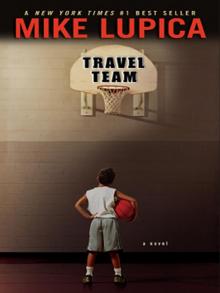 Travel Team
Travel Team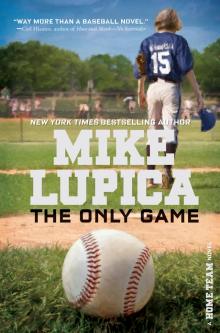 The Only Game
The Only Game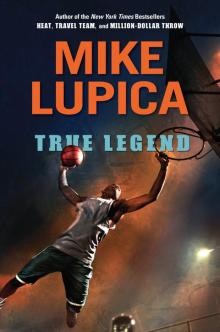 True Legend
True Legend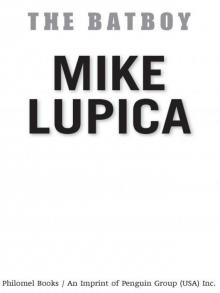 The Batboy
The Batboy Hot Hand
Hot Hand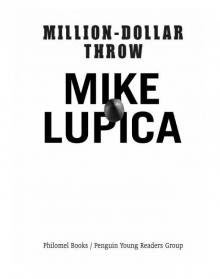 Million-Dollar Throw
Million-Dollar Throw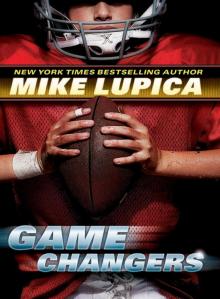 Game Changers
Game Changers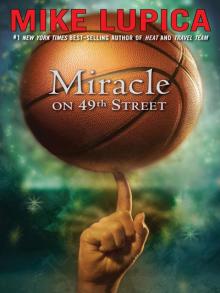 Miracle on 49th Street
Miracle on 49th Street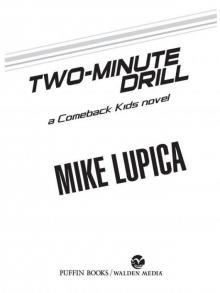 Two-Minute Drill
Two-Minute Drill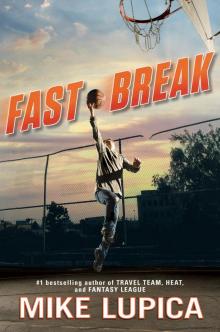 Fast Break
Fast Break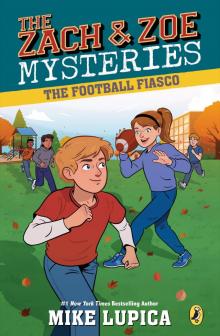 The Football Fiasco
The Football Fiasco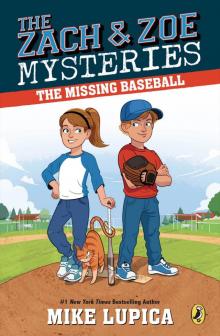 The Missing Baseball
The Missing Baseball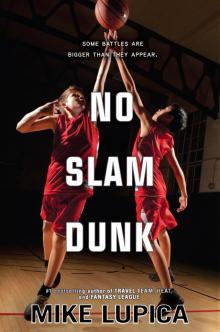 No Slam Dunk
No Slam Dunk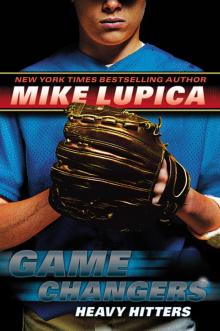 Heavy Hitters
Heavy Hitters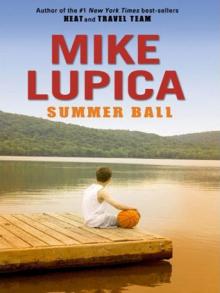 Summer Ball
Summer Ball The Extra Yard
The Extra Yard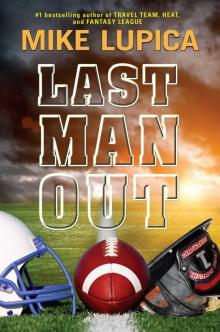 Last Man Out
Last Man Out